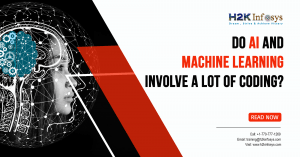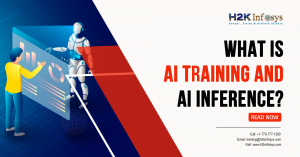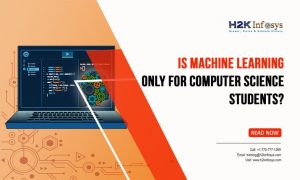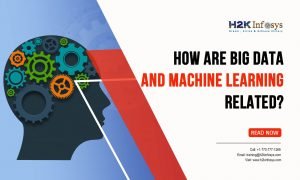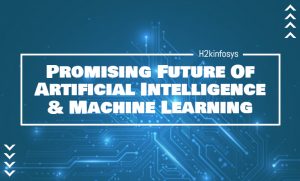Introduction: Why Artificial Intelligence Tools Matter Today
Artificial Intelligence (AI) is no longer a futuristic concept it is a daily reality that drives industries, businesses, and careers. From chatbots that answer customer queries to advanced systems that detect fraud, Artificial Intelligence Tools are transforming how we live and work.
The global AI market is growing at a rapid pace, expected to reach $1.8 trillion by 2030. Organizations are investing in AI not only to automate processes but also to make smarter decisions, improve efficiency, and create personalized user experiences. For learners and professionals, mastering AI begins with understanding the most powerful tools shaping the industry.
This blog explores the most important Artificial Intelligence Tools, their applications, and how they connect to career growth. By the end, you’ll see how enrolling in an Artificial intelligence online training or an AI certification course can open up opportunities in one of the fastest-growing fields.
What Are Artificial Intelligence Tools?
Artificial Intelligence Tools are software or frameworks that help developers, data scientists, and engineers build, train, and deploy AI models. These tools simplify tasks like:
- Natural Language Processing (NLP)
- Machine Learning (ML) model development
- Deep Learning (DL)
- Computer Vision
- Predictive Analytics
They are essential in industries like healthcare, finance, e-commerce, education, and cybersecurity.
If you are pursuing an Artificial intelligence certification online, learning these tools is critical for your success.
Why Learn Artificial Intelligence Tools?
Before diving into the list, let’s understand why these tools are important:
- Career Demand – Employers look for candidates with hands-on knowledge of AI tools.
- Efficiency – Tools automate tasks like data cleaning, training, and model deployment.
- Industry Applications – From fraud detection in banking to self-driving cars, tools make AI projects practical.
- Learning Pathway – Mastering tools is a core part of any AI certification course or AI learning courses.
Top Artificial Intelligence Tools for Beginners and Professionals
Below is a structured breakdown of the most important Artificial Intelligence Tools learners must know.

1. TensorFlow
TensorFlow is one of the most widely used Artificial Intelligence Tools for machine learning and deep learning projects. It provides a flexible platform to build and deploy AI applications at scale.
- Use Case: Image recognition, natural language processing, speech recognition.
- Key Features: Open-source, supports neural networks, and works well with large datasets.
- Industry Example: Healthcare systems use TensorFlow for medical image analysis to detect tumors.
If you join an AI course certification, you’ll almost certainly practice TensorFlow for hands-on projects.
2. PyTorch
PyTorch is a deep learning framework popular for its ease of use and flexibility. Many researchers and developers prefer it for fast prototyping.
- Use Case: Research-based machine learning, reinforcement learning, and NLP.
- Key Features: Dynamic computation graph, large library ecosystem.
- Industry Example: Automotive companies use PyTorch to build AI models for self-driving cars.
3. Keras
Keras is a high-level API that runs on top of TensorFlow. It is beginner-friendly, making it ideal for learners in AI learning courses.
- Use Case: Quick prototyping, building neural networks.
- Key Features: Intuitive, modular, and supports both convolutional and recurrent networks.
- Industry Example: E-commerce companies use Keras for recommendation systems.
4. Scikit-learn
Scikit-learn is one of the most accessible Artificial Intelligence Tools for machine learning. It is widely used for data analysis and predictive modeling.
- Use Case: Classification, regression, clustering, dimensionality reduction.
- Key Features: Rich set of algorithms, integration with Python libraries like NumPy and Pandas.
- Industry Example: Financial institutions use Scikit-learn for credit risk prediction.
5. OpenCV
OpenCV (Open Source Computer Vision Library) is essential for computer vision applications. It is among the most practical Artificial Intelligence Tools for image and video analysis.
- Use Case: Face detection, gesture recognition, object tracking.
- Key Features: Large collection of image processing functions, real-time capability.
- Industry Example: Security companies use OpenCV for surveillance systems.
6. Natural Language Toolkit (NLTK)
NLTK is a must-learn library for anyone interested in text analytics and NLP.
- Use Case: Sentiment analysis, chatbot development, document classification.
- Key Features: Pre-trained models, lexical resources, easy integration.
- Industry Example: Customer service teams use NLTK-based tools to automate ticket classification.
7. SpaCy
SpaCy is another powerful NLP library often used in professional applications. It is designed for production use, making it more robust than NLTK.
- Use Case: Entity recognition, dependency parsing, text classification.
- Key Features: Fast, industrial-strength NLP, multilingual support.
- Industry Example: Legal firms use SpaCy to automate document review.
8. IBM Watson
IBM Watson provides AI-powered services for NLP, computer vision, and data analysis. It has been applied in industries like healthcare and retail.
- Use Case: Chatbots, fraud detection, customer experience.
- Key Features: Cloud-based, ready-to-use AI solutions.
- Industry Example: Hospitals use Watson for clinical decision support.
9. RapidMiner
RapidMiner is a data science platform that integrates machine learning and AI.
- Use Case: Data preparation, predictive modeling, and machine learning automation.
- Key Features: Visual workflows, automated model deployment.
- Industry Example: Businesses use RapidMiner for predictive sales analytics.
10. H2O.ai
H2O.ai is one of the leading Artificial Intelligence Tools for scalable machine learning.
- Use Case: Fraud detection, customer churn prediction, risk assessment.
- Key Features: Automated machine learning, integration with big data platforms.
- Industry Example: Banks use H2O.ai to detect suspicious transactions.
How Artificial Intelligence Tools Are Used Across Industries
Healthcare
- Detect diseases from medical scans.
- Predict patient health risks using machine learning models.
Finance
- Fraud detection in banking.
- Automated trading strategies with AI models.
Retail and E-Commerce
- Personalized product recommendations.
- Chatbots for 24/7 customer support.
Education
- Intelligent tutoring systems.
- Automated grading of assignments.
Cybersecurity
- Intrusion detection systems.
- Real-time monitoring with AI-driven alerts.
Learning Artificial Intelligence Tools: A Step-by-Step Path
If you are serious about a career in AI, here’s a roadmap:
- Enroll in Artificial intelligence online training – Learn the foundations of AI concepts.
- Work on AI learning courses – Practice coding and building models with guidance.
- Take an AI certification course – Earn credentials that employers value.
- Focus on projects – Apply AI tools to real-world problems like prediction models or NLP tasks.
- Prepare for placement – Gain interview readiness with mock sessions included in training.
Evidence of Growing Demand for AI Skills
- According to LinkedIn, AI specialist roles grew 74% annually in recent years.
- Gartner predicts that AI will create 2.3 million jobs by 2030.
- A survey found that professionals with an AI course certification earn 20–30% higher salaries compared to peers without certification.
This proves that mastering Artificial Intelligence Tools is a direct pathway to career growth.
Key Takeaways
- Artificial Intelligence Tools simplify and accelerate AI model development.
- Popular tools include TensorFlow, PyTorch, Keras, Scikit-learn, and OpenCV.
- These tools are applied across industries like healthcare, finance, education, and cybersecurity.
- Enrolling in an Artificial intelligence certification online program ensures you gain hands-on practice.
- Career opportunities in AI are growing rapidly, making now the best time to learn.
Conclusion
The future belongs to professionals who understand and can apply Artificial Intelligence Tools in real-world scenarios. From deep learning frameworks to NLP libraries, these tools empower you to create impactful solutions.
Take the first step in your AI journey. Enroll in H2K Infosys’ Artificial Intelligence online training today and earn an AI certification course that accelerates your career.


